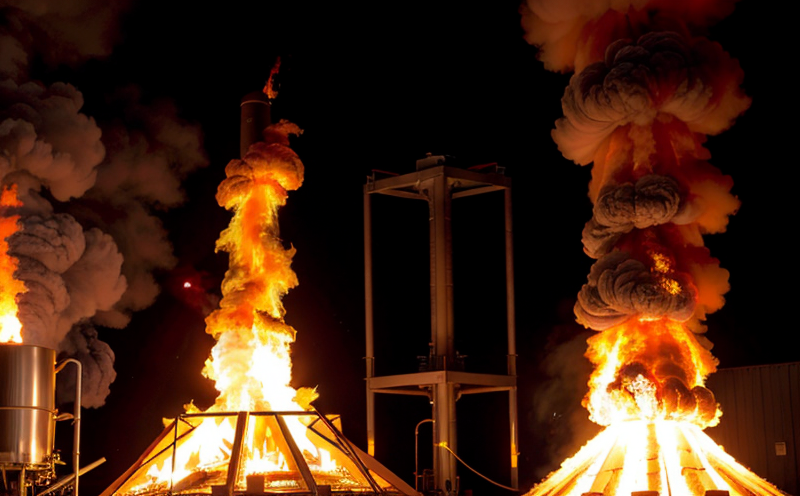EN 71 Flammability and Safety Testing of Toys
The European Standard EN 71-1:2019 specifies requirements for safety aspects of toys, including flammability tests. This regulation aims to ensure that toys are safe when used by children, thereby protecting them from potential hazards such as burns or other injuries caused by fire or heat.
The standard covers various types of materials and components commonly found in toys, ensuring they meet stringent safety criteria before being placed on the market. One crucial aspect is flammability testing, which ensures that no part of a toy can catch fire easily under normal conditions. This prevents accidents involving children who may play with or near such items.
Flammability tests are conducted using specific procedures outlined in EN 71-2:2019, focusing on both the ignition and flame spread behavior of materials used in toys. These tests help identify any potential risks associated with how a toy might behave if exposed to fire or heat sources.
For instance, fabric components like clothing accessories or soft furnishings must not ignite readily when subjected to small flames from candles or matches. Similarly, hard plastics and other synthetic materials need to exhibit minimal flame spread characteristics even after prolonged exposure to high temperatures.
The testing process involves carefully preparing samples according to specified dimensions and then subjecting them to controlled environments designed to mimic real-world scenarios where a child might encounter these items. By following this rigorous methodology, manufacturers can ensure their products comply with regulatory standards while also maintaining brand integrity through consistent quality assurance practices.
Compliance with EN 71-2 is essential for businesses operating within the European Union (EU), as non-compliant toys risk being withdrawn from sale or even facing legal action. Therefore, many companies invest heavily in labs equipped to perform these tests accurately and efficiently, often collaborating with third-party laboratories specializing in such areas.
Accurate compliance testing not only protects consumers but also enhances trust between manufacturers and regulators alike. It fosters transparency throughout the supply chain, ensuring all parties involved understand what is expected regarding safety standards for toys intended for young children.
Benefits
- Enhanced Consumer Confidence: Compliance with EN 71-2 instills confidence among parents and guardians that their children’s safety is paramount when selecting toys.
- Legal Protection: Meeting regulatory requirements reduces the risk of legal issues associated with non-compliant products, providing peace of mind for manufacturers.
- Innovation Support: By adhering to these stringent standards, companies can continue innovating without compromising on safety, allowing them to stay competitive in today’s marketplace.
Furthermore, achieving compliance enhances a company's reputation, making it more attractive to potential customers and investors alike. The ability to demonstrate robust quality control measures is increasingly becoming a key factor for success in the modern business landscape.
International Acceptance and Recognition
The European Standard EN 71-2 has gained widespread acceptance beyond just EU member states. Many countries around the world have adopted similar standards or incorporated parts of it into their own regulations, recognizing its importance in promoting child safety.
This global recognition underscores the significance of rigorous testing procedures like those specified in EN 71-2 for ensuring that toys meet high safety benchmarks worldwide. It also highlights how international cooperation plays a crucial role in establishing consistent standards across different regions and industries.
Competitive Advantage and Market Impact
- Increased Sales: Compliance with EN 71-2 can lead to increased sales by expanding market access in countries that require adherence to this standard.
- Better Brand Reputation: Successfully passing these tests helps establish a positive brand image, which is crucial for maintaining customer loyalty and attracting new customers.
- Higher Quality Standards: Adhering to strict safety protocols sets a precedent for higher overall quality standards within the industry, potentially leading to improved product performance over time.





